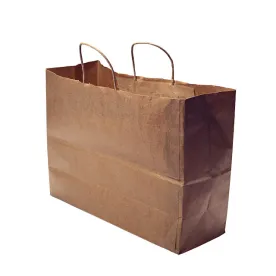Woodman’s Food Market, Inc. v. Clorox Co., No. 15-3001 (7th Cir. August 12, 2016).
Clorox Sales Company and Clorox Company produce a range of consumer goods. Clorox sold goods to Plaintiff Woodman’s Food Market, a local grocery store with locations in Wisconsin and Illinois. Clorox also sold to discount warehouses such as Costco and Sam’s Club. In 2014, Clorox unilaterally announced that it would sell its large packs only to wholesale discount clubs. Thus, the large bulk-size packs, which had previously been sold to Woodman’s were no longer available to it by direct purchase from Clorox.
Woodman’s filed a Robinson-Patman Act case in the United States District Court for the Northern District of Illinois. Woodman’s claimed that because the large packs gave a competitive advantage to the discount warehouse purchasers, that Clorox had discriminatorily provided them a promotional advantage. Woodman’s alleged that Clorox’s refusal to continue to sell it large packs constituted unlawful price discrimination under Robinson-Patman Act Sections 2(a), (d) and (e). 15 U.S.C. §§ 13(a), (d), (e). The claims under Section 2(a) were later abandoned, and Woodman’s relied on its claims under Sections 2(d) and (e).
Section 2 of the Clayton Act, enacted in 1914, was the first federal law specifically directed against price discrimination. However, because it was expressly limited to geographic pricing practices that were harmful to rivals rather than customers or suppliers, it effectiveness was severally limited. The limitations led to its amendment in 1936, the provisions of which remain basically intact. Section 2(a) prohibits a seller from discriminating in price between different buyers, if the discrimination adversely affects competition. A perceived deficiency in Section 2(a) was the ability of a supplier to circumvent the Act by providing special provisions and other economic benefits that would disadvantage rivals that were not directly included within the sales price. Sections 2(d) and (e) addressed price discriminations that are concealed as promotional “services or facilities”, unless the economic benefits are available to competing buyers on “proportionately equal terms”. Section 2(d) prohibits sellers from providing indirect discriminatory payments, while Section 2(e) prohibits sellers from providing discriminatory services or facilities.
Here, the conduct complained of did not involve indirect pricing discounts, or the favoring of one customer over another through the furthering of promotional services or facilities. Rather, the conduct complained of consisted of the furthering of a larger bulk container size to “big box” retailers, such as Costco and Sam’s, while refusing to make its larger packet sizes available to regional markets such as Woodman’s.
The United States District Court for the Northern District of Illinois denied two motions to dismiss brought by Clorox. The District Court held that by supplying big-box stores with bulk packs, it had engaged in discrimination in violation of Sections 2(d)(e) in giving illegal “preferential treatment”. In effect, the District Court had held that because the bulk packs would be available to a certain class of purchaser, it was akin to granting Clorox preferential promotional and service and facilities advantages not made available to its competition. A unanimous three-judge panel of the Seventh Circuit reversed the rulings. Writing for the panel, Circuit Judge Diane Wood began her opinion:
“Does size matter? Not always, as this case illustrates.”
The Court held that the provision of a particular size container of its products to certain customers, but not others, without more, was not a violation. Thus, product size is neither a “promotion”, nor a “service” or “facility” for the purposes of Section 2(d)(e).
The Court noted that the Federal Trade Commission, which filed an amicus brief in support of Clorox, no longer relied on two venerable FTC decisions, one from 1940 and one from 1956. See Luxor, Ltd., 31 FTC 658, 654 (1940) and General Foods Corp., 52 FTC 798, 826 (1956). As reported by Judge Wood for the Panel, these decisions, which would otherwise support Woodman’s position, have been expressly repudiated by the Commission.
Thus, the Seventh Circuit agrees with the view it ascribes to the Federal Trade Commission that Sections 2(d) and (e) pertain only to promotional services or facilities, and that package size alone “is not a promotional service or facility.” This view is also consistent with the position taken by the Federal Trade Commission and its Fred Meyer Guides, issued following the Supreme Court’s decision in Fred Meyer, Inc., 390 U.S. 341 (1968).
Perhaps of equal or even greater import is the analysis of the Court that if an enhancement of consumer preference was based solely upon the availability of a larger package size to a discount store, such an interpretation of Section 2(d)(e) would wipe out the seller’s discretion to choose which products to sell to whom. Citing United States v. Colgate & Co., 250 U.S. 300 (1919). The Court then reasons that
“No court has ever held that the Robinson-Patman Act goes that
far, and we have no inclination to be the first.”



 />i
/>i

